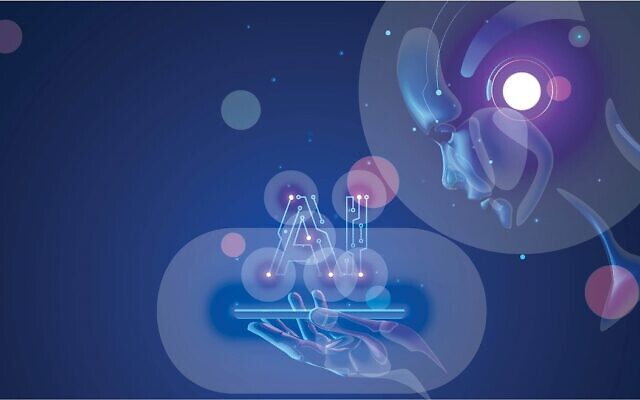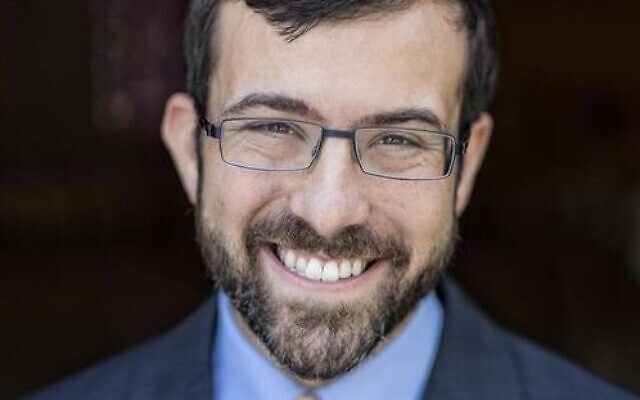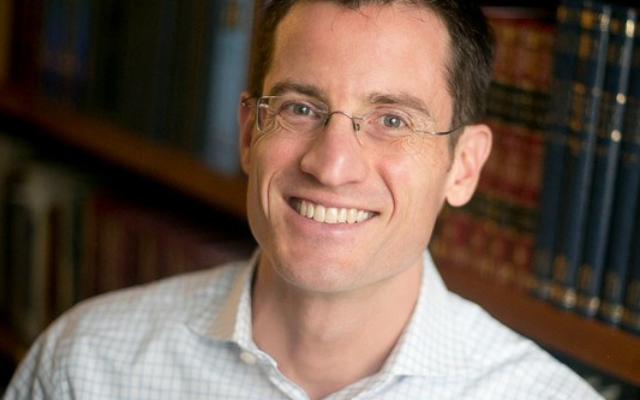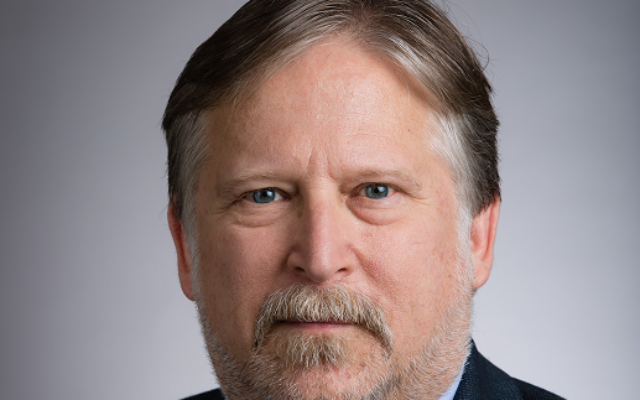Shearith Israel Receives Scientists in Synagogues Grant
The intersection of artificial intelligence and Judaism will be the subject of its programming.

For many consumers of current news, AI is now easily understood as the acronym for artificial intelligence. AI is not, however, easily understood by most readers or viewers of news. Congregation Shearith Israel hopes to rectify that for its members, and perhaps for the wider Atlanta Jewish community.
The intown synagogue has been granted $5,000 by the Scientists in Synagogues program, one of only 15 communities nationwide to receive the grant from Sinai and Synapses and the American Association for the Advancement of Science Dialogue on Science, Ethics and Religion. Shearith Israel is designing its grant programming for the 2023-2024 year around the intersection of AI and Judaism.
This is the second such grant Shearith Israel received. According to Rabbi Jonathan K. Crane, one of the team members at Shearith Israel who has been involved with the grant application and programming, the congregation received a similar $5,000 grant in 2018-2019. Altruism was the focus for that grant, he told the AJT.

Crane is the Raymond F. Schinazi Scholar of Bioethics and Jewish Thought at the Ethics Center. He is also a professor of medicine, Emory School of Medicine, and affiliated faculty in the Department of Religion, Emory College of Arts and Sciences. Among the handful of other congregants on the science team that is spearheading the grant programming is Paul Root Wolpe, director of the Center for Ethics at Emory University. He is also a professor in the departments of medicine, pediatrics, psychiatry, neuroscience and biological behavior, and sociology.

At the end of June, Shearith Israel’s leadership team was to travel to New York City for a workshop hosted by Scientists and Synagogues to launch the program. In addition to the grant, the organization is providing guidance and mentorship to the 15 grantees.
“The project aims to share how some of the most thoughtful scientists integrate their Judaism and their scientific work so that they can be role models and ambassadors for productive conversations surrounding Judaism and science,” states the Scientists and Synagogues website.
Kaiman said Shearith Israel has already kicked off the programming with an overview of AI and its ethical and theological implications. He is also running an experiment, using ChatGPT, “to engage in conversation about prayer and AI.”

ChatGPT is an AI chatbot that uses natural language processing to create humanlike conversational dialogue. It is capable of generating responses based on the context and tone of the conversation.
At the first session, the participants asked ChatGPT to provide its version of the Amidah prayer. Kaiman said he was able to interact with the chatbot about the prayer. Participants have been asked to use ChatGPT to write a Jewish prayer for healing. Results will be shared with him, and “if they are good and meaningful, we may bring it for prayer in our shul,” said the rabbi.
AI, according to Crane, is “an extraordinary leap in technology that enables technology to do things that we had only thought about in science fiction and mythology. It is mind boggling how it can analyze and synthesize things that can be helpful or lead us astray.”
And that’s where ethics comes in. “AI is inherently an ethical enterprise. Ethics dovetails with AI,” said Crane. “On the development side, who is doing the coding, because everyone has his own biases. What data is being fed into it and how will that influence the product? Then, there’s the question of veracity.”
Crane said AI is already being used in the medical arena, as well as in policing, surveillance, and warfare.
As outlined in its grant proposal, Shearith Israel sees its programming in three buckets. In one, noted Crane, there will be conversations with AI experts. In another, there will be workshops geared for members to engage with AI technology, such as the one Kaiman already launched with ChatGPT. Another workshop under consideration is the intersection of AI and Jewish music. The third bucket will be open to audiences and include Torah study.
Acknowledging reality, Rabbi Kaiman said of AI, “We can’t make its existence disappear, so we need to be informed about it. We don’t have a choice but to be forward thinking.”
According to Crane, “there’s great interest in the congregation about AI. It’s being ripped from the headlines and there’s simmering ongoing concern about these technologies. There’s an underlying uncertainty on what degree it impacts our lives.” There is also a question of whether it’s too late to try to regulate AI. After all, he emphasized, “you can’t put the genie back into the bottle.”
For congregants who are wary of AI, these programs can create “safe spaces to learn about these technologies,” said Crane. “Fear is based on lack on information.”
Another goal of Shearith Israel is to partner with other congregations and institutions with some of its programming and bring the subject to the wider Atlanta Jewish community. To that end, Kaiman said Shearith Israel plans to invite the community to its first external scholar in residence program, Oct. 24, when Rabbi David Zvi Kalman will address AI. Kalman is scholar in residence and director of new media at Shalom Hartman Institute of North America.
- News
- Local
- Jan Jaben-Eilon
- Artificial Intelligence
- Congregation Shearith Israel
- Scientists in Synagogues
- Sinai and Synapses
- American Association for the Advancement of Science Dialogue on Science
- Ethics and Religion
- Rabbi Jonathan K. Crane
- Rabbi Ari Kaiman
- U.S. Centers for Disease Control and Prevention
- Emory University
- Georgia State
- Georgia Tech
- Raymond F. Schinazi Scholar of Bioethics and Jewish Thought at the Ethics Center
- Emory School of Medicine
- Department of Religion
- Emory College of Arts and Sciences
- Paul Root Wolpe
- ChatGPT
- Rabbi David Zvi Kalman



comments